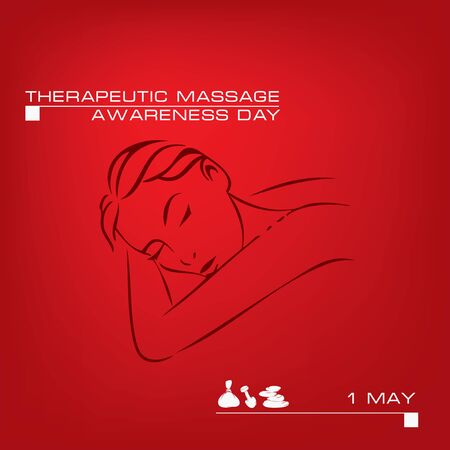Understanding Sensitive Skin – The UK Perspective
When it comes to sensitive skin, there’s no one-size-fits-all definition – especially here in the UK. Sensitive skin is a condition where your skin reacts more easily to environmental factors, products, or even stress. But what does that really mean for British men? Let’s break it down.
What Is Sensitive Skin?
Sensitive skin is often described as feeling itchy, tight, or uncomfortable after exposure to certain triggers. You might notice redness, dryness, or a stinging sensation after shaving or using a new moisturiser. In the UK, with our ever-changing weather and unique urban environments, these reactions can be more common than you think.
Common Triggers in the British Climate
| Trigger | Description | Typical UK Example |
|---|---|---|
| Weather Changes | Sudden shifts from rain to sun or cold to warm affect moisture balance. | Going from a chilly morning commute to central heating at work. |
| Hard Water | Limescale-rich water can strip natural oils and aggravate sensitivity. | Washing your face in London or Manchester tap water. |
| Air Pollution | Urban pollution increases skin irritation and redness. | Cycling through city centre traffic or spending time on the Tube. |
| Stress & Lifestyle | Busy routines and lack of sleep weaken the skin barrier. | Late nights at the pub followed by early meetings. |
The Changing Conversation Amongst British Men
Traditionally, discussing sensitive skin wasn’t something blokes talked about openly. However, times are changing. More men across the UK are swapping tips on grooming forums and chatting with barbers about their skin concerns. This cultural shift means there’s less stigma around sensitive skin – making it easier for gents to seek advice from dermatologists and invest in proper skincare routines tailored for them.
2. Everyday Challenges: Sensitive Skin and Daily Life in Britain
Living in Britain brings its own set of daily hurdles for those with sensitive skin. From bustling commutes on the Tube to unpredictable weather and the infamous hard water, everyday routines can be unexpectedly harsh on your complexion. Let’s explore how these uniquely British factors play a role—and what you can do about it.
Weather: Four Seasons in One Day
British weather is notoriously fickle. You might leave home in the drizzle, face gusty winds by lunch, then experience an unexpected burst of sun by afternoon. Rapid shifts between cold and warmth can cause sensitive skin to become red, tight, or flaky. Wind strips moisture, while sudden sun exposure can trigger irritation or flare-ups—especially for those prone to rosacea or eczema.
The Commute: Urban Stressors
Whether you’re hopping on a crowded London Underground train or cycling through city streets, urban commuting exposes your skin to pollution, sweat, and friction. Pollution particles from traffic are known to aggravate sensitivity, leading to breakouts or stinging sensations. Even something as simple as removing your scarf or mask after a journey can leave skin feeling raw or inflamed.
Hard Water Woes
Much of the UK has hard water—water high in minerals like calcium and magnesium. While safe to drink, it’s tough on sensitive skin. Hard water interacts with soap and cleansers, making them less effective and leaving a residue that can dry out or irritate the skin barrier.
Common Everyday Triggers for Sensitive Skin in the UK
| Daily Routine | Potential Trigger | Impact on Sensitive Skin |
|---|---|---|
| Commuting (Tube/Buses) | Pollution & Heat | Irritation, redness, clogged pores |
| Frequent Handwashing (especially post-pandemic) | Harsh soaps & hard water | Dryness, cracking, stinging |
| Outdoor Activities | Wind & UV exposure | Flaking, increased sensitivity |
Quick Tips from British Dermatologists:
- Always use a gentle cleanser designed for sensitive skin—especially if you live in a hard water area.
- Create a barrier before heading out by applying moisturiser with ceramides or squalane.
- If you cycle or walk to work, wear a scarf or face covering to shield against wind and pollution.
The realities of life in Britain make it essential to tailor your skincare routine not just to your skin type but also to your daily environment. Stay tuned for expert solutions tailored specifically for UK living in the next sections.

3. Key Ingredients to Embrace and Avoid
When it comes to sensitive skin, knowing which ingredients to welcome or steer clear of is essential. Many British dermatologists agree that the unpredictable UK climate – cold winds, rain, and hard water – means your skincare needs may differ from those in other countries. Below is a straightforward guide to ingredients commonly found in products across the UK market, highlighting those celebrated by leading British dermatologists, as well as some best left on the shelf.
Ingredients to Embrace
| Ingredient | Why Top Dermatologists Recommend It |
|---|---|
| Ceramides | Helps restore and maintain the skin’s barrier, crucial for dealing with harsh weather and pollution common in Britain. |
| Niacinamide (Vitamin B3) | Reduces redness and soothes irritation; ideal for sensitive skin prone to flare-ups during seasonal changes. |
| Aloe Vera | Naturally calming and hydrating—perfect for after a blustery walk or exposure to central heating. |
| Squalane | Mimics natural skin oils without clogging pores, offering lightweight moisture suitable for men and women alike. |
| Colloidal Oatmeal | Excellent for relieving itching and inflammation, especially if you suffer from eczema or contact dermatitis. |
Ingredients to Avoid
| Ingredient | Why British Experts Advise Caution |
|---|---|
| Sodium Lauryl Sulfate (SLS) | A common foaming agent that can strip the skin’s natural oils, often aggravating sensitivity—particularly in London’s hard water areas. |
| Alcohol Denat. (Denatured Alcohol) | Frequently found in toners; may cause stinging and dryness when used regularly. |
| Synthetic Fragrances | Often a top culprit for allergic reactions; fragrance-free is usually better for sensitive British skin. |
| Essential Oils (e.g., Lavender, Citrus) | Though popular in natural skincare, they can be irritating for those with delicate complexions, especially in colder months. |
| Parabens & Formaldehyde-releasing Preservatives | Linked to irritation and allergies; many UK brands are now phasing these out in favour of gentler alternatives. |
A Note on Labels: What to Look For on the High Street
In the UK, terms like “hypoallergenic,” “dermatologist-tested,” or “fragrance-free” are good indicators for sensitive skin products. Always patch-test new products behind your ear or on your forearm before applying them broadly. If you’re ever unsure, consult with a local dermatologist—they’ll know exactly what works best given Britain’s unique environment. Next time you pop into Boots or browse online, keep this ingredient cheat sheet handy for stress-free shopping.
4. Dermatologist-Backed Solutions: British Favourites
When it comes to tackling sensitive skin, British dermatologists emphasise a blend of science-backed routines and reliable products that cater to the unique needs of men across the UK. Whether you’re dealing with unpredictable weather, hard water, or simply want to keep your grooming straightforward yet effective, these expert recommendations have you covered.
Best Practices for Sensitive Skin
- Keep it Simple: Opt for minimalist routines – avoid over-cleansing or layering too many products.
- Patch Test New Products: Always test on a small area before applying across your face.
- Moisturise Regularly: Hydration is key, especially after shaving or exposure to wind and cold.
- Sun Protection: Even on cloudy British days, SPF matters; choose non-comedogenic options.
Product Picks from High-Street & Pharmacy
| Product Type | High-Street Favourite | Pharmacy Staple |
|---|---|---|
| Cleanser | NIVEA Men Sensitive Face Wash | Cetaphil Gentle Skin Cleanser |
| Moisturiser | BULLDOG Sensitive Moisturiser | E45 Cream |
| Shaving Foam/Gel | L’Oréal Men Expert Hydra Sensitive Shaving Gel | Aveeno Therapeutic Shave Gel |
| Sunscreen | Garnier Ambre Solaire Sensitive Advanced Face Sun Cream SPF50+ | La Roche-Posay Anthelios Melt-in Cream SPF50+ |
Why These Products Work for British Men
The above choices are popular not just for their effectiveness but also for their accessibility in the UK. Many are fragrance-free or formulated specifically for sensitive skin, minimising irritation while protecting against common environmental stressors such as urban pollution and unpredictable weather. These dermatologist-approved picks allow you to maintain healthy skin without breaking the bank or complicating your daily routine.
5. Men’s Grooming for Sensitive Skin: Tips from the Experts
If you’re a British gent with sensitive skin, navigating grooming routines can feel like a minefield. But, as any seasoned barber along Jermyn Street will tell you, looking sharp doesn’t mean sacrificing your skin’s comfort. Let’s dive into practical, expert-backed grooming routines tailored for men—infused with subtle nods to classic British barbershop traditions.
Choosing the Right Products
Opt for fragrance-free and alcohol-free formulas, which are gentler on reactive skin. Dermatologists across the UK recommend sticking to products with minimal ingredients and avoiding harsh exfoliants. Here’s a handy guide for your grooming shelf:
| Grooming Step | Dermatologist-Recommended Product Types | British Barbershop Tip |
|---|---|---|
| Cleansing | Cream or gel cleansers for sensitive skin | Use lukewarm water – it’s gentler and prevents redness |
| Shaving | Alcohol-free shaving creams, non-foaming gels | Apply with a traditional badger brush for even coverage |
| Aftercare | Fragrance-free moisturiser, soothing balms with aloe or chamomile | Splash cold water post-shave to close pores – an old barbershop classic |
| Beard Care (if applicable) | Nourishing beard oils without synthetic fragrances | Tame with a wooden comb to avoid static and irritation |
The Classic Wet Shave: A British Staple
The wet shave is a rite of passage in many British barbershops. If you have sensitive skin, swap multi-blade razors for a quality safety razor—fewer blades means less irritation. Always shave after a hot shower when hair is softer, and never skip the pre-shave oil; it’s the secret weapon for reducing friction.
Key Steps for a Comfortable Shave:
- Prep Properly: Use a warm towel compress before shaving—just like they do at your local barber.
- Shave with the Grain: This reduces tugging and the risk of ingrown hairs.
- Soothe Afterwards: Finish with an alcohol-free balm and avoid touching your face unnecessarily.
A Final Word from the Experts
Consistency is king. Stick to gentle routines and trusted products recommended by dermatologists—and don’t be afraid to ask your barber for tips tailored to your skin type. Remember, proper grooming isn’t just about looking sharp; it’s about feeling confident in your own skin, every day.
6. Lifestyle Tweaks: Supporting Sensitive Skin Beyond Skincare
If you’re battling sensitive skin, it’s not just your skincare routine that matters—your lifestyle choices can make a world of difference. British dermatologists often emphasise the importance of looking beyond products and addressing daily habits that impact your skin’s resilience and overall health. Here’s how diet, stress management, and sleep play their part in the typical British way of life:
Diet: Eat Well for Skin Health
The classic British diet might lean on hearty comfort foods, but a few tweaks can really help sensitive skin. Try incorporating more oily fish like salmon or mackerel (packed with Omega-3s), antioxidant-rich berries, and plenty of leafy greens. Limit processed foods and excess sugar, as these can trigger inflammation.
| Food Type | Why It Helps | British Example |
|---|---|---|
| Oily Fish | Reduces inflammation | Grilled mackerel fillet |
| Berries | Rich in antioxidants | Handful of blueberries at breakfast |
| Leafy Greens | Supports skin repair | Kale in a Sunday roast salad |
Stress Management: The Power of a Tea Break
Life in the UK is often punctuated by the humble tea break—a tradition worth keeping. Taking time for yourself, whether it’s a cuppa with a mate or five minutes of deep breathing, helps lower cortisol levels (the stress hormone known to aggravate sensitive skin). Mindfulness apps or a stroll in the park are equally ‘very British’ ways to keep stress in check.
Quick Tips for Stress Relief
- Savour your tea break—choose calming herbal teas like chamomile or peppermint.
- Practice mindful breathing while waiting for the kettle to boil.
- Swap screen time for a brisk walk around your local green space.
Prioritising Sleep: Let Your Skin Recover Overnight
Getting enough shut-eye is vital for skin repair. Most British dermatologists recommend aiming for 7–8 hours each night. Create a relaxing bedtime ritual—perhaps reading a book with your evening cuppa (decaf after 6pm!), or listening to gentle music to wind down. Remember, sleep isn’t just rest; it’s when your skin rebuilds its natural barrier.
Lifestyle Checklist for Sensitive Skin Sufferers:
- Add at least two portions of oily fish per week to your meals.
- Sneak more berries into breakfast or snacks.
- Pencil in regular tea breaks—not just for hydration, but also relaxation.
- Aim for consistent sleep hours; invest in blackout curtains if needed.
Your everyday choices matter as much as your moisturiser when living with sensitive skin. With small changes tailored to the British lifestyle, you can support your skin from within—one cuppa and one good night’s sleep at a time.
7. When to Seek Professional Help in the UK
While managing sensitive skin at home can be effective for many, there are certain signs when it’s time to reach out to a professional. In Britain, knowing when and how to access healthcare services for your skin is vital for long-term health and peace of mind.
Key Signs You Should Book a GP or Dermatologist Appointment
| Symptom | What It Could Mean | Recommended Action |
|---|---|---|
| Persistent Redness or Rash | Might indicate eczema, rosacea, or an allergic reaction | See your GP if lasting more than two weeks |
| Itching That Disrupts Sleep | Could be a sign of dermatitis or infection | Book a GP appointment promptly |
| Skin Lesions or Sores That Won’t Heal | Potenial sign of infection or skin cancer | Seek urgent medical advice |
| Sudden Swelling or Blistering | Possible severe allergy (angioedema) | Call NHS 111 or visit A&E if severe |
| Changes in Moles or Birthmarks | Could be melanoma or other skin cancers | Urgent review by GP or dermatologist needed |
Navigating the British Healthcare System for Skin Concerns
The first port of call for most skin issues in the UK is your local GP surgery. They can assess your symptoms, provide initial treatment, and refer you to an NHS dermatologist if necessary. For urgent concerns—like rapidly spreading rashes, suspected infections, or allergic reactions—the NHS 111 helpline offers quick guidance and can direct you to immediate care.
What to Expect from Your Appointment
- Your GP Visit: Be ready to describe your symptoms in detail, including when they started and any triggers you’ve noticed. Bring photos if your skin flares up intermittently.
- NHS Dermatology Referral: Wait times vary depending on urgency and region. Urgent referrals (e.g., suspected skin cancer) are prioritised.
- Treatments Offered: The NHS offers evidence-based treatments like topical steroids, antihistamines, and patch testing for allergies. Private dermatologists may offer additional options, but always check credentials.
Pro Tips for Navigating Care in the UK:
- If your symptoms are mild but persistent, consider asking your pharmacist for advice—they’re trained to help with many minor skin conditions.
- If you’re unsure whether your symptoms warrant a doctor’s attention, use the NHS 111 online service as a first step.
Remember: Early intervention is key for both comfort and preventing complications. Don’t hesitate to seek professional help when your sensitive skin feels out of control—your future self will thank you.


